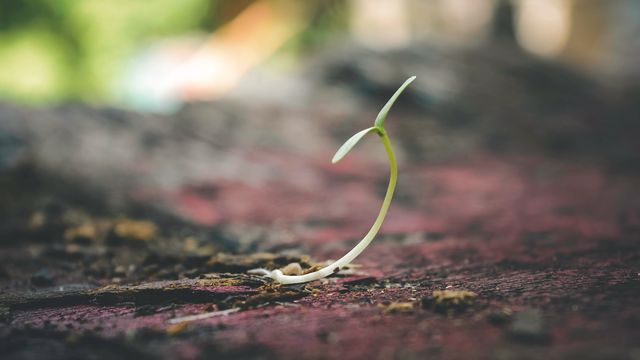
Past. Present. Future.
Those are words that have meaning only to us as human beings. The dog sitting at my feet can learn and remember from prior experiences, but she doesn’t really have a sense of the past. At least not the way we do. We not only remember prior experiences, but also, we create stories and narratives about them that give our lives meaning.
She also doesn’t really have a sense of the future. She is not imagining what she might be or the meaning her life might have in days ahead. She lives fully in the present, because she can really only be in the present.
Not so with us. Just like we create stories about the past, we also create stories about the future. In fact, it is the stories we tell about lives and our world that shape our understanding of who we are and how we will live in this world.
Thinking about the relationship between past, present and future helps me understand hope as a spiritual practice. Not hope as a feeling or idea but hope as a spiritual practice.
When you take the experiences of the past and bring them into the future, you have nostalgia. When you take the experiences of the present and project them into the future, you have optimism.
There really is a difference between hope and optimism.
Optimism is a simple expectation that predicts and describes the future on the basis of present trends or dreams. The guiding assumption here is that the future is another name for the prolongation of the present. All that is going to happen unfolds from what is already given.

Our society is a big believer in optimism. Our optimism is confident about the triumphant strength of human ingenuity, resilience, and goodness. It is convinced that the future hold unlimited opportunity and unfailing progress.
Please understand me. There is nothing wrong with optimism. We should give optimism its due. Unlike pessimism, it tends to engage more in the search for solutions to problems when they show up.
But optimism has its limitations.
For example, notice the description of optimism; it is based on human ingenuity, human resilience, human goodness. The future and what we make of it is totally in our hands. Any hope for the future is limited to what you can do now to take control of present circumstances. This stance is why you hear lots of self-help talk about taking control of your life. Because when you take control of your life, you take control of your future.
Another problem with optimism is that there are lots of people whose present circumstances, at any given moment, make it difficult to project a promising future. If your present experiences contain crippling anxiety, grief, or trauma, it is hard to be optimistic. If your present experiences contain poverty, oppression, or the very threat of existence, it is hard to be optimistic.
It is hard to have optimism in these circumstances, but it is possible to have hope. If nostalgia is projecting the past into the present and optimism is projecting the present into the future, perhaps hope is bringing the future to bear on the present. So the power of our hope is based on the power of our vision for the future.
Which brings me to why I am engaged in all this talk of hope. We are entering the time of year that Christians call Advent.

There is no time of the year when we are called to be countercultural than these days. The society around us counts down shopping days until Christmas; we count down the days to a celebration of Jesus’ birth. While all around us we see shades of bright green and red, in our places of worship there are shades of deep blue or purple.
While all around us are parties and festive gatherings, we gather to reflect on the meaning and direction of our lives. While all around us the season ends with a grand day that includes opening presents and enjoying a feast, the end of the season of Advent is only a beginning. It is the beginning of a journey into the future. But not just any future, a particular future. God’s future.
Hope is bringing the future to bear on the present. The power of hope is based on the power of our vision of the future. In this season, we declare that there is no greater source of hope that God’s vision for the future. In this season, we hear again the wonder and the challenges of God’s hope.
We consider how this hope is so very different from optimism, which assumes that the future is only another name for the prolongation of the present. All that is going to happen unfolds from what is already given. But with hope, the future can bring the radically new or completely unexpected. Hope is limited only by God’s imagination.
But in this season, we not only hear and consider the promise of God’s hope. We look for ways that we have shaped our lives that work against this hope. We look for ways that we can give expression to this hope in our daily living. Hope as a spiritual practice.

Through the season of Advent, I invite us to spend some time with hope, because it is easy to see that it is something the world desperately needs. It can be our gift to the world. So, I invite us to know it more fully. To wonder about it. To dive into it. To welcome it into our lives. More reflections to come, but for now, I welcome your thoughts.
